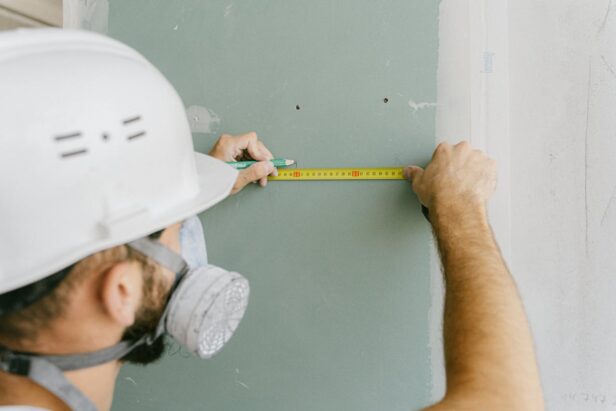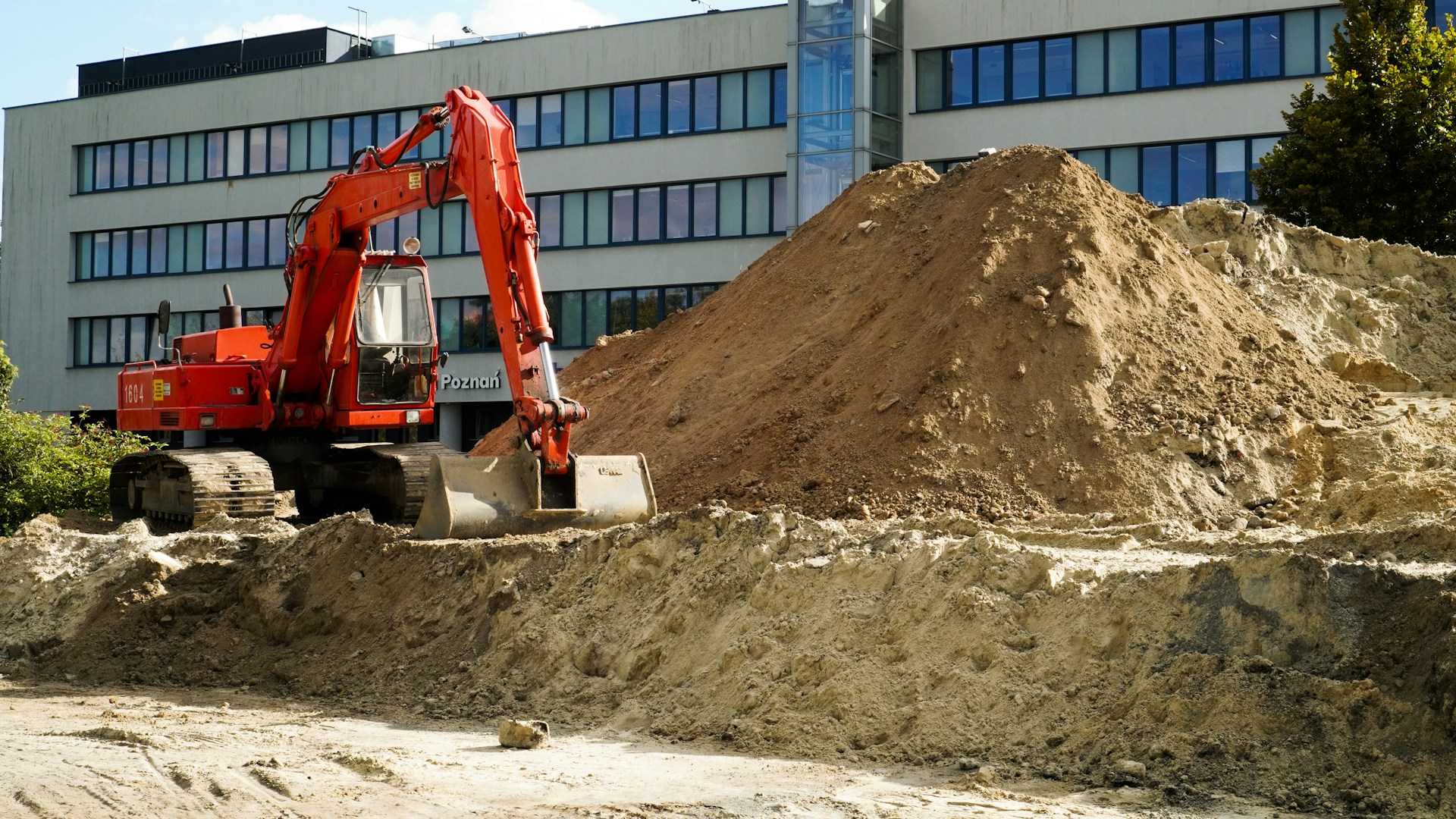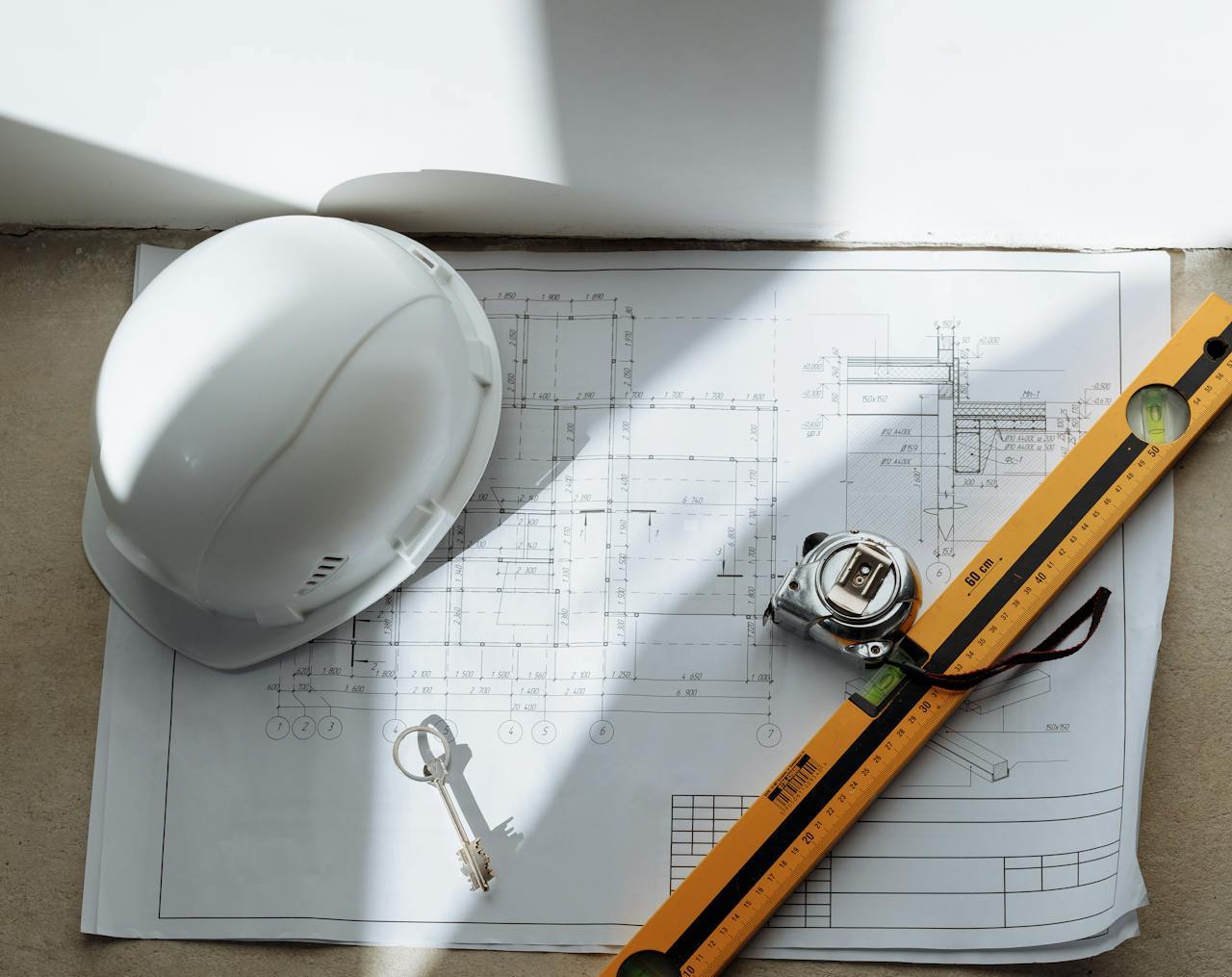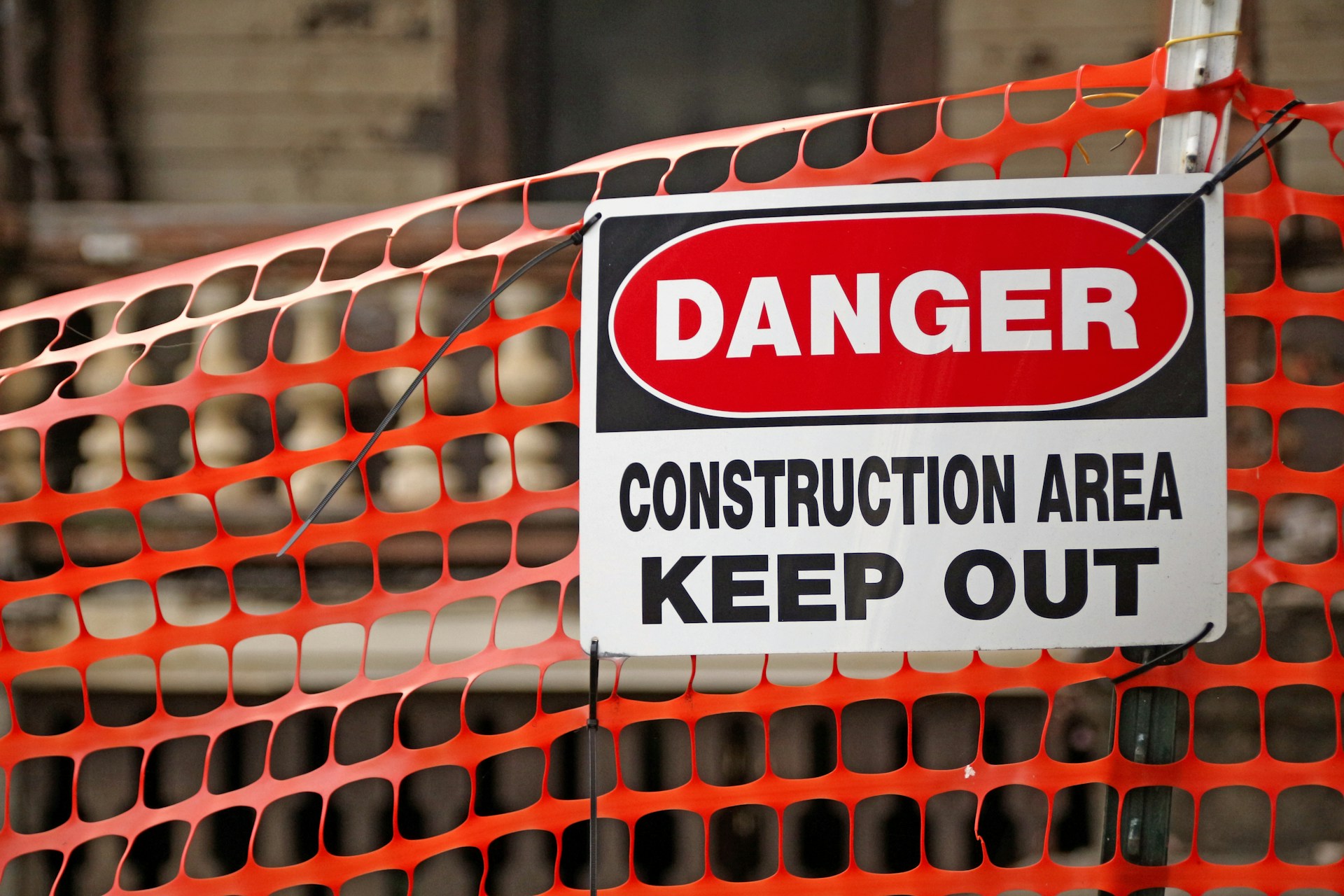Commercial drywall contracting is fundamental to modern interior construction, bridging the gap between raw structural elements and finished spaces that serve as functional environments for businesses and organizations. This trade requires specialized expertise in both installation techniques and material selection to ensure that buildings not only look professional but also meet stringent commercial building codes.
At EB3 Construction, we focus on delivering comprehensive drywall solutions that go beyond basic panel installation. Our core services can include metal stud framing, which forms the skeleton for interior walls; precision drywall hanging; professional taping and finishing for seamless appearances; and custom texturing that defines the character of commercial spaces. We aim to provide capabilities that include integration with mechanical systems and specialized fire-rated assemblies, which can be important to commercial clients.
The scope of our work may span diverse commercial settings, each potentially requiring unique approaches. Office buildings may need acoustical solutions to maintain productive environments. Healthcare facilities can require specialized installations to accommodate medical equipment and maintain sterile conditions. Retail spaces often call for flexible configurations that can adapt to changing merchandise displays. Restaurants typically need durable finishes that can withstand high traffic while maintaining aesthetic appeal. By understanding these distinctions, we aim to tailor our approach to each project”s specific requirements rather than applying a one-size-fits-all solution.
What Makes Top-Performing Commercial Drywall Contractors Stand Out?
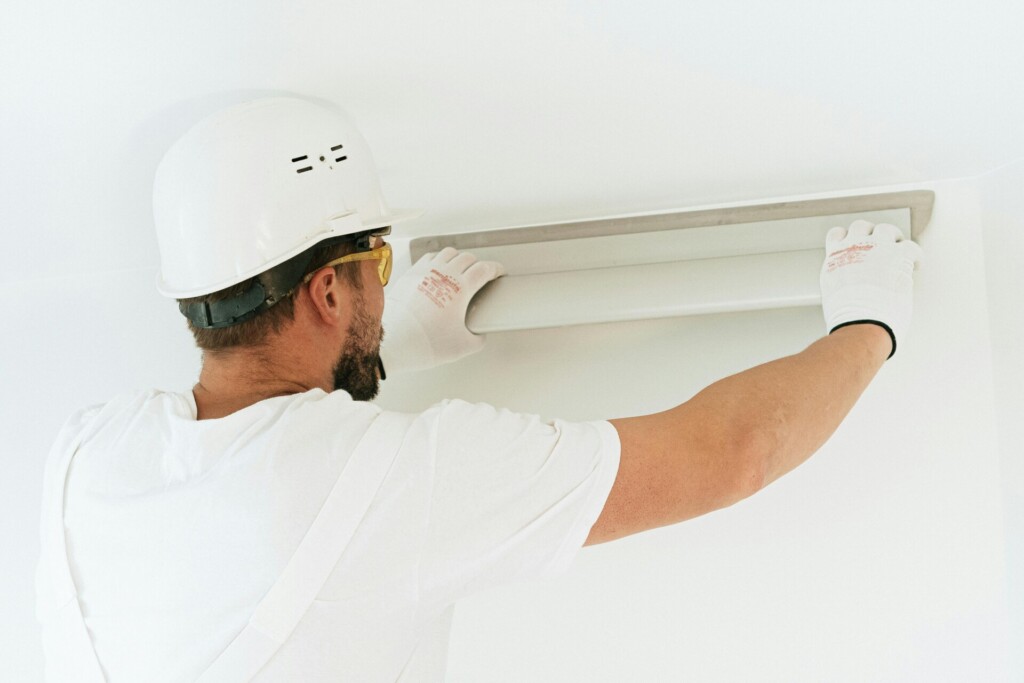
In the competitive landscape of commercial construction, exceptional drywall contractors distinguish themselves through differences in execution and approach. While many contractors can hang drywall, top performers aim to bring substantial value to commercial projects, potentially creating lasting benefits for developers and property owners.
Deep Industry Experience and Technical Mastery
The foundation of superior drywall work often begins with extensive field experience. Top-performing teams typically include professionals with many years of hands-on expertise, creating a knowledge base that can translate to smoother project execution. This experience can be particularly valuable when confronting unusual structural configurations or addressing the unique challenges of retrofit projects in occupied spaces.
Technical proficiency with specialized applications is another crucial differentiator. Skilled craftspeople may excel in achieving smooth wall finishes and executing level 5 finishing—a high drywall finishing standard that aims to ensure quality surfaces even under harsh lighting conditions. This expertise can extend to fire-rated assemblies, where precise installation directly impacts building safety and code compliance.
During supply chain disruptions, contractors who understand material substitutions and alternative assembly methods may provide significant value by helping maintain project momentum despite material shortages. Such adaptability often comes through years of working with diverse materials and systems.
Professional Project Management Protocols
Quality workmanship paired with structured project management can lead to consistent results. Top commercial drywall contractors typically implement formal documentation systems, maintain detailed progress tracking, and conduct rigorous quality control inspections throughout the installation process. They aim to coordinate meticulously with other trades to prevent conflicts and sequence work efficiently.
Schedule adherence is a critical factor in commercial drywall contracting. Even minor delays can potentially cascade into significant project disruptions, possibly impacting tenant move-in dates or causing financial consequences. Professional contractors strive to maintain realistic timeline projections and communicate proactively when adjustments become necessary.
The current labor market presents genuine challenges, but leading contractors may mitigate these issues through strategic workforce planning. They typically aim to maintain crews of sufficient size and skill level to handle project demands without compromising quality or timeline commitments.
| Safety Requirement | Description |
|---|---|
| OSHA Compliance | Adherence to OSHA regulations covering workplace safety, including fall protection, electrical safety, hazard communication, and PPE usage. |
| Fall Protection | Use of harnesses, lanyards, guardrails, and barriers to ensure worker safety at heights. |
| Fire Safety Standards | Compliance with building codes and use of fire-resistant materials during drywall installation. |
| Personal Protective Equipment | Essential PPE includes hard hats, safety glasses, gloves, and respiratory protection during sanding. |
| Material Handling | Guidelines include proper lifting techniques and regular maintenance of lifting equipment. |
| Training and Certifications | Ongoing safety training and certifications to enhance worker knowledge and skills. |
Comprehensive Service Capabilities
While drywall forms the core service, exceptional contractors typically offer complementary capabilities that can streamline project execution. They may provide integrated solutions that include framing, acoustical ceilings, insulation installation, and specialized finishes. This comprehensive approach can reduce coordination burdens for owners and general contractors while ensuring compatible systems throughout the building envelope.
The ability to self-perform multiple scopes may create accountability advantages—when a single team handles related components, there can be clarity regarding responsibility and fewer opportunities for finger-pointing if issues arise. Additionally, this approach may yield cost efficiencies by optimizing labor deployment and reducing markup layers.
Unwavering Safety Commitment
Safety performance can serve as an indicator of contractor quality. Top-tier commercial drywall contractors typically implement formal safety programs that aim to exceed minimum regulatory requirements. They may conduct regular safety training, maintain OSHA certifications for field personnel, and implement job-specific safety plans for each project.
This commitment to safety can deliver multiple benefits—potentially reducing injury risks, minimizing insurance costs, and preventing project disruptions that incidents may cause. When evaluating potential contractors, developers and property owners should consider reviewing safety records and verifying the existence of structured safety protocols.
The construction industry has seen a growing emphasis on safety documentation, particularly regarding silica exposure and fall protection. Forward-thinking contractors have responded by implementing comprehensive dust management systems and investing in advanced scaffolding and lift equipment to enhance both safety and productivity.
What Types of Projects Do Commercial Drywall Contractors Typically Handle?
At EB3 Construction, we can manage a wide range of commercial drywall projects that require precise installation and finishing techniques. Our experience spans multiple sectors, enabling us to meet the unique requirements of each building type. Industry trends indicate a growing demand for commercial drywall services, especially as construction rebounds post-pandemic, with healthcare facilities and educational institutions potentially leading the recovery.
Healthcare Facilities
We approach healthcare projects with knowledge of infection control requirements and compliance standards. Hospitals typically demand drywall systems that offer enhanced acoustical performance, fire resistance, and moisture control. Medical office buildings often require smooth, sanitary finishes that can withstand rigorous cleaning protocols while maintaining aesthetic appeal.
Our teams understand the challenges of working in active healthcare environments where minimal disruption is critical. Installing systems like lead-lined drywall for imaging rooms requires precision work that helps protect both staff and patients. When developing spaces for patient care, we carefully coordinate with mechanical contractors to ensure proper placement of medical gas lines and other essential services before closing walls.
Educational Institutions
School construction projects present distinct requirements for drywall installation. Durability is often a top priority, particularly in high-traffic areas. We can incorporate impact-resistant drywall products in hallways and gymnasiums, while using standard applications in classrooms and administrative areas.
University facilities may require more sophisticated acoustical treatments, especially in lecture halls and dormitories where sound transmission must be minimized. Scheduling these projects typically revolves around academic calendars, which may require teams to complete substantial work during summer breaks or holiday periods when campuses are less active.
Retail Environments
Retail projects often involve compressed timelines and aesthetic priorities that influence the drywall approach. Store build-outs may feature specialty finishes and display wall systems requiring precise layout and execution. Shopping centers typically need durable partitions between tenant spaces that meet specific fire-rating requirements while accommodating various ceiling heights and mechanical systems.
Restaurant spaces can present additional challenges, with kitchen areas requiring moisture-resistant and cleanable surfaces. Front-of-house spaces often include design elements like curved walls, soffits, and decorative finishes that showcase technical capabilities. Extensive coordination with other trades may be necessary to accommodate the complex electrical and plumbing systems required.
| Project Type | Drywall Application |
|---|---|
| Office Buildings | Focus on acoustical solutions for productive environments; use of fire-rated corridors, stairwells, and shaft walls for safety infrastructure. |
| Healthcare Facilities | Specialized drywall systems for infection control, enhanced acoustical performance, and fire resistance; use of lead-lined drywall for imaging rooms. |
| Educational Institutions | Durable and impact-resistant drywall for high-traffic areas; sophisticated acoustical treatments in lecture halls and dormitories. |
| Retail Environments | Specialty finishes and display wall systems; moisture-resistant and cleanable surfaces in kitchen areas. |
| Hospitality | Sound isolation between guest rooms; efficient installation processes for repeated hotel room construction. |
| Industrial Spaces | Specialized moisture resistance or impact protection based on facility purpose. |
Office Buildings and Corporate Interiors
Corporate office projects typically involve both core-and-shell construction and tenant improvement work. Initial build-outs often require establishing fire-rated corridors, stairwells, and shaft walls that form the building”s safety infrastructure. Subsequent tenant improvements typically focus on creating functional workspaces with appropriate acoustical properties and aesthetic appeal.
Open office concepts remain popular but can present acoustical challenges that may be addressed through strategic drywall placement and insulation techniques. Conference rooms and executive spaces often incorporate premium finishes and sound isolation features. Many corporate clients now request sustainable materials and low-VOC finishing products, which can be integrated into standard offerings.
Hospitality and Specialty Projects
Hotel construction often combines elements from multiple project types, requiring teams to adapt accordingly. Guest rooms typically demand sound isolation between units, while public spaces need durable, attractive finishes. The repetitive nature of hotel room construction allows for the implementation of efficient installation processes that help maintain quality and efficiency.
Industrial spaces can present distinct challenges, with potential requirements for specialized moisture resistance or impact protection depending on the facility”s purpose. Religious buildings may incorporate unique architectural features like domes, arches, and other decorative elements that showcase craftsmen”s technical abilities. The versatility of drywall teams allows for adaptation of methods to meet the specific requirements of these specialized projects.
How Can Businesses Find and Evaluate Commercial Drywall Contractors?

Finding qualified commercial drywall contractors for your project requires a structured approach. The construction industry is continually changing, and having the right drywall partners can significantly impact project quality and timeline adherence.
Leveraging Modern Contractor Databases
Specialized construction databases can transform how general contractors connect with qualified trade partners. Platforms like The Blue Book Building and Construction Network provide access to numerous company listings, allowing searches by location and specialty. The database includes contractors specializing in various drywall applications, from basic installation to specialized treatments.
Downtobid offers another resource with its verification process that aims to ensure contractor information is current and accurate. Their platform vets each subcontractor”s specialties, capabilities, and contact details before listing them. This verification process may involve cross-checking details using multiple databases, public records, and other sources to confirm business activity and contact information accuracy.
When searching these platforms, it”s important to look beyond basic contact information to identify contractors with project type experience that matches specific needs. Many contractors specialize in specific sectors like healthcare facilities, office buildings, or retail spaces, and finding those with relevant expertise can improve project outcomes.
Thorough Evaluation Criteria
Once potential drywall contractors are identified, a thorough evaluation process is crucial. Experience within the specific project type is an important consideration. A contractor who primarily works on retail spaces may not have the specialized knowledge needed for healthcare facilities, with their strict code requirements and infection control considerations.
Examining each contractor”s portfolio of completed projects can help understand their capability to handle the scope, complexity, and quality standards required. Contractors who demonstrate consistent performance across multiple similar projects may rise to the top of consideration lists.
Technical capabilities assessment forms another crucial part of evaluation. Investigating whether the contractor has experience with specialized systems or materials specified in the project plans is important. Their ability to execute complex details or work with specific manufacturers” systems can impact installation success.
Financial stability represents another factor to consider in the selection process. Looking for contractors who have the necessary resources to properly staff the project and purchase materials without cash flow issues that could delay progress is advisable. This may involve reviewing their bonding capacity and insurance coverage to ensure they meet project requirements.
Verification and Reference Process
Proper licensing and insurance verification is crucial in contractor selection. Confirming that all necessary state and local licenses are current and that insurance coverage meets or exceeds project requirements is important. This typically includes general liability, workers” compensation, and sometimes specific coverage for the type of work being performed.
Safety records review can be an important part of the evaluation process. Requesting information about a contractor”s EMR (Experience Modification Rate) and OSHA recordables can help assess their commitment to maintaining a safe work environment. Contractors with strong safety programs may bring that same level of discipline to quality control.
Reference checking can provide valuable feedback on contractor performance. Contacting past clients and other general contractors who have worked with the drywall contractor may reveal insights into their communication style, responsiveness to issues, and ability to maintain schedules that might not be apparent from their marketing materials.
Managing the Bidding Process
For larger projects, specialized bidding platforms can streamline the process of soliciting and managing multiple bids. These platforms allow uploading project plans and specifications, tracking contractor interest, and organizing bid submissions in a centralized location. The efficiency gained can help identify qualified contractors while maintaining competitive pricing.
When reviewing bids, it”s important to look beyond the bottom line to understand what”s included and excluded. Some contractors may appear to offer lower prices but exclude important components of the work or use lower-quality materials. Experience can help identify these discrepancies and make appropriate comparisons.
Communication capabilities can factor heavily in the final selection process. Contractors who demonstrate strong communication during the bidding phase—asking relevant questions, responding promptly, and providing clear, detailed proposals—may bring that same professionalism to the project execution phase.
Throughout this evaluation process, maintaining detailed records of findings can create a database of qualified contractors that serves on future projects. This institutional knowledge allows for continual refinement of the subcontractor selection process, to help optimize project outcomes.
How Can Commercial Drywall Contractors Improve Their Business Success?
As general contractors overseeing commercial drywall projects, we understand that thriving in a competitive field requires strategic thinking beyond just delivering quality work. Our approach aims to combine construction expertise with modern business practices to enhance growth opportunities for projects we undertake.
Building a Robust Digital Presence
We focus on establishing a strong online presence for our commercial drywall operations. A professional website with project galleries can showcase craftsmanship, while dedicated service pages communicate specific capabilities. This digital storefront can operate continuously, potentially connecting with clients as they search for solutions.
Local SEO optimization may be vital to visibility strategy. Ensuring business information remains consistent across online directories can make it easier for developers and property owners to find commercial drywall services nearby. A digital presence can facilitate transparent communication about material availability and project timelines with clients.
Regular content updates highlighting projects and case studies may showcase expertise and build credibility with potential clients. Construction industry stakeholders often value seeing real-world applications of drywall solutions before reaching out for consultations.
Expanding Service Offerings Strategically
Offering complementary services beyond basic drywall installation can enhance value for clients. Providing integrated solutions that include framing, acoustical ceilings, and specialty finishes may eliminate coordination challenges for property owners and developers who would otherwise need to manage multiple subcontractors.
Service expansion typically requires careful implementation. Mastering core drywall services before gradually incorporating related offerings can build capability and expertise. Each addition may undergo quality control testing before becoming part of a standard service package.
Construction trends suggest that developers may increasingly prefer contractors who can manage multiple aspects of interior finishing. A comprehensive approach can help reduce schedule conflicts and communication issues that often arise when coordinating between separate specialty contractors.
No table output available
Implementing Business Transparency Practices
Building trust through transparent business practices is important. Clear contracts with detailed terms of service can help eliminate ambiguity and set appropriate expectations from a project”s inception. Openly displaying credentials, insurance coverage, and safety records may reassure property owners that they are working with qualified professionals who prioritize compliance and risk management.
Providing detailed breakdowns of project components, including materials, labor, and project phases, can help clients understand the value they receive. This approach to pricing transparency may be particularly effective when working with institutional clients such as healthcare facilities and educational institutions where budget accountability is crucial.
Regular progress reporting can keep stakeholders informed throughout the construction process. Providing updates on project milestones, potential challenges, and implemented solutions may help maintain open communication that property owners and developers often value in contractor selection.
Leveraging Construction Technology
Integrating specialized construction software can streamline operations across drywall projects. Digital tools may help manage material inventories, track labor productivity, and document quality control processes. Construction management platforms can enable teams to communicate effectively across multiple job sites, potentially reducing delays and improving coordination.
Mobile technology allows site supervisors to complete daily reporting from the field, capturing progress photos and documenting work completed in real-time. This digital documentation can create accountability and provide valuable reference points when questions arise about completed work.
BIM (Building Information Modeling) integration has the potential to transform how complex commercial drywall projects are approached. By participating in the BIM process, contractors may identify potential conflicts before they occur on site, potentially reducing rework and schedule delays that impact project profitability.
Analyzing Market Position and Competition
Regularly assessing competitor practices both locally and nationally can help refine business approaches. This analysis may help identify service gaps in the market and emerging construction trends to capitalize on. Understanding how successful drywall contractors operate in other markets can provide valuable insights adaptable to local conditions.
Tracking industry benchmarks allows for measuring performance against established standards. Monitoring metrics such as material waste percentages, completion timelines, and callback rates can support continuous improvement in operational efficiency.
Staying connected with industry associations can keep contractors informed about regulatory changes affecting commercial drywall installation. This proactive approach to compliance may help avoid costly mistakes and position contractors as knowledgeable partners who can guide clients through building requirements.
Conclusion: The Evolving Landscape of Commercial Drywall Contracting
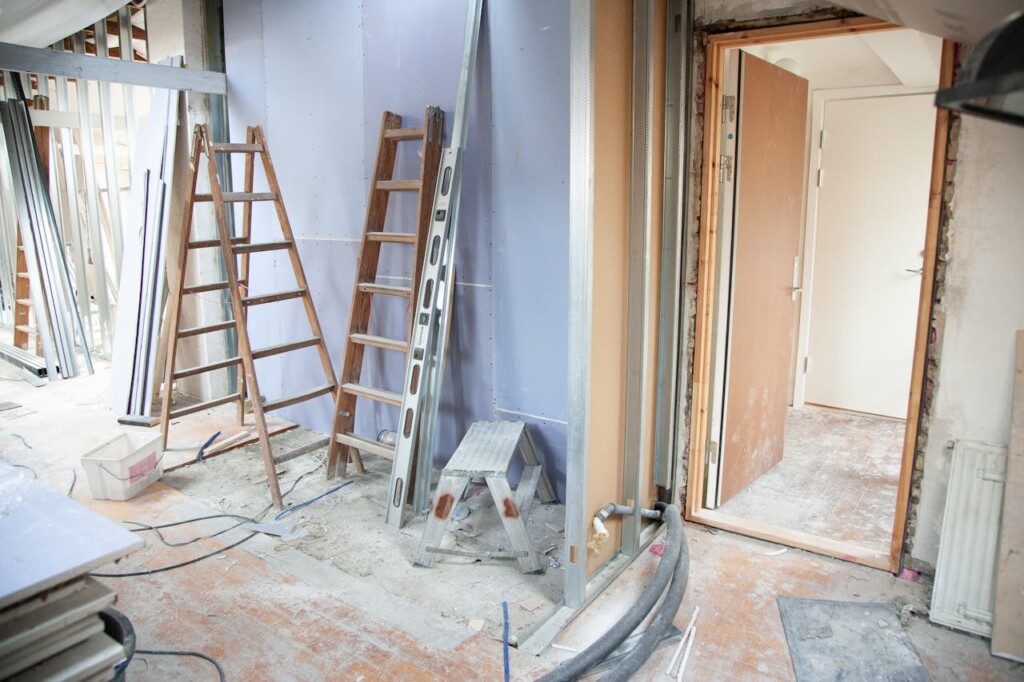
Throughout this discussion, we”ve noted that the commercial drywall contracting industry is experiencing significant transformation. The integration of reality capture technology, sustainable materials, and advanced installation techniques can fundamentally change the approach to drywall projects in commercial settings. These innovations offer potential solutions to challenges in construction efficiency, quality control, and project documentation. Contractors who adopt these advancements may position themselves to meet industry demands for precision, transparency, and sustainability.
For property owners and developers, this evolution presents both opportunities and considerations. Selecting a drywall contractor may involve evaluating not only craftsmanship but also technological capability, sustainable practices, and comprehensive service offerings. A contractor”s ability to provide visual documentation, implement prefabricated solutions, or offer specialized acoustical treatments can impact project outcomes. In an environment where construction costs and timelines are important factors, partnering with contractors who combine traditional expertise with innovative approaches may offer advantages in both project execution and long-term building performance.
Ready to explore how your next commercial project can benefit from experienced drywall contractors who understand today”s evolving standards? Contact EB3 Construction to discuss your specific requirements.

